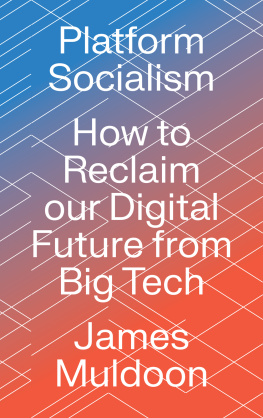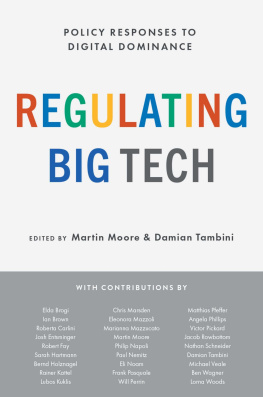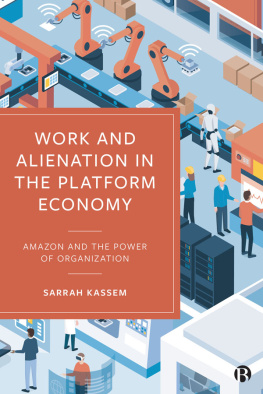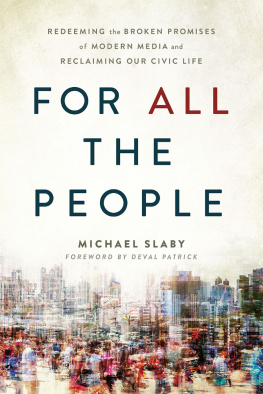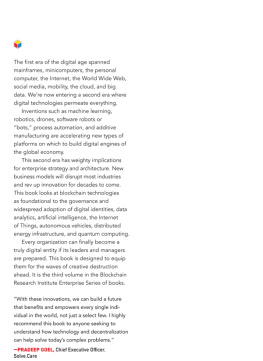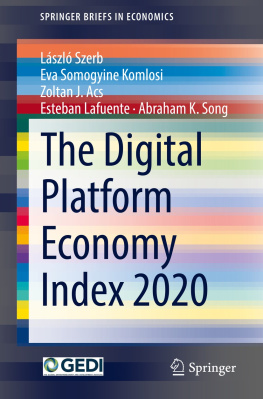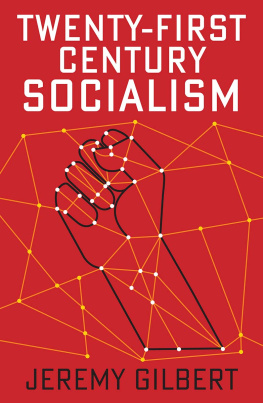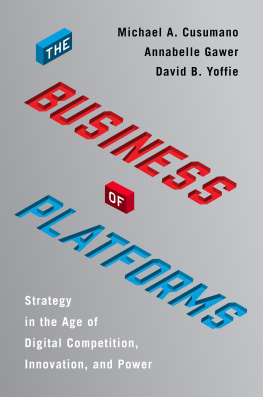Contents
Guide
Platform Socialism
A ground-breaking, ambitious and rigorous account of how and why we must take control over contemporary digital technologies.
Nick Srnicek, Lecturer in Digital Economy, Kings College London and author of Platform Capitalism
A clarion call for hope amid twenty-first-century doom. With analytical flair, he shows that platforms are not invincible and that their infrastructure may be the key to a better world.
Phil Jones, author of Work Without the Worker: Labour in the Age of Platform Capitalism
A compelling account of the political struggles that will be needed to challenge capitals control over digital platforms, and an essential read for anyone who believes in technologys emancipatory potential.
Wendy Liu, author of Abolish Silicon Valley: How to Liberate Technology from Capitalism
A punchy analysis of the platform economy that offers more than a critique of big techs vision of our collective future. Muldoon sketches the contours of a democratic socialist alternative.
Aaron Benanav, Researcher at Humboldt University of Berlin and author of Automation and the Future of Work
Encourages us to open our minds fully to the possibility of an alternative future, in which technology is put to work for the many, not the few.
Lizzie OShea, lawyer and author of Future Histories

First published 2022 by Pluto Press
New Wing, Somerset House, Strand, London WC2R 1LA
www.plutobooks.com
Copyright James Muldoon 2022
Material has been reprinted from the following articles and reproduced by kind permission of the publishers: Airbnb Has Been Rocked by COVID-19: Do We Really Want to See It Recover?, openDemocracy, 4 April 2020; Why We Need Cooperatives for the Digital Economy, Jacobin, 7 May 2020; Dont Break Up Facebook Make It a Public Utility, Jacobin, 16 December 2020.
The right of James Muldoon to be identified as the author of this work has been asserted in accordance with the Copyright, Designs and Patents Act 1988.
British Library Cataloguing in Publication Data
A catalogue record for this book is available from the British Library
ISBN 978 0 7453 4695 3 Paperback
ISBN 978 0 7453 4696 0 Hardback
ISBN 978 0 7453 4697 7 EPUB
ISBN 978 0 7453 4698 4 PDF
This book is printed on paper suitable for recycling and made from fully managed and sustained forest sources. Logging, pulping and manufacturing processes are expected to conform to the environmental standards of the country of origin.
Typeset by Stanford DTP Services, Northampton, England
Simultaneously printed in the United Kingdom and United States of America
Contents
Acknowledgements
This book was written during the first lockdown and substantially revised during the second. It benefited from the feedback of three anonymous reviewers from Pluto Press who helped me reshape the central arguments and cut extraneous material. The team at Pluto have been amazingly supportive in seeing the book through the production process.
The argument builds on a line of thought I have been pursuing since 2019 about alternatives to the current organisation of digital platforms. It builds on a theoretical framework I developed in Building Power to Change the World and Council Democracy. It also draws on commentary I have written for Open Democracy and Jacobin. Material has been reprinted from the following articles: Airbnb Has Been Rocked by COVID-19: Do We Really Want to See It Recover?, openDemocracy, 4 April 2020; Why We Need Cooperatives for the Digital Economy, Jacobin, 7 May 2020; Dont Break Up Facebook Make It a Public Utility, Jacobin, 16 December 2020.
The book owes much to the thriving intellectual community at the think tank Autonomy. I am appreciative of those who offered their generous feedback on an early draft of two chapters. Thank you to Will Stronge, Julian Siravo, Stephanie Sherman, Phil Jones, Jack Kellam, Kam Sandhu, Kyle Lewis, Joe Ryle, Lukas Kikuchi, Cosimo Campani, Luiz Garcia, Sonia Balagopalan, Ishan Khurana and all the collaborators and affiliates who have contributed to Autonomys work over the years.
Phil Jones read and commented on a full draft and made insightful comments that greatly improved the book. Mirjam Mller, Bruno Leipold, Rahel Sss, Roberta Fischli and Steven Klein helped me think through different sections of the book and provided invaluable feedback.
Thank you also to participants in our socialist calculation debate reading group, including Lillian Cicerchia, Tully Rector, Aaron Benanav, Jack Kellam, Natasha Piano, Mirjam and Steven. I have learned a lot from all of your insightful analyses and from reading your work.
I couldnt have asked for a more supportive environment for my teaching and research than with my colleagues at the University of Exeter, Penryn. In particular, Andy Schaap, Clare Saunders and Karen Scott have offered much advice and support during my first years at the university.
I owe a debt of gratitude to my friends and family for their ongoing support, in particular to my family in Australia who I have not seen since lockdown and miss immensely. To Sarah, Beth, Michael, Stacey, Noah, Catriona and Pete, I promise to give you real birthday presents when I see you and not give you a copy of this book. In London, I have spent much time during lockdown with Lele, Johannes, Marion, Paul, Jeanne, Tom and Nick whose support, kindness and stimulating conversations were a source of inspiration throughout the process.
I also need to acknowledge the important contributions of my two miniature dachshunds, Barcus Aurelius and Karl Barx for their many cuddles and amusing antics. You get away with too much, but you are so damn cute. I take consolation in the fact that I know you didnt choose the naughty boy life, it chose you.
The most important person throughout has been my inspirational wife, Yasamin. Thank you for everything for all your support, conversations and adventures together. I owe you so much and am so grateful to share my life with you.
Introduction
The most tragic form of loss isnt the loss of security; its the loss of the capacity to imagine that things could be different.
Ernst Bloch, The Principle of Hope
A deep sense of technological determinism pervades our present era. Tech entrepreneurs predict how technology will transform our world for years to come. These silicon prophets concoct grand visions of our automated and bioengineered future with glittery images of luxury and convenience. Technology is habitually cast as an external force developing on its own accord and dragging us along with it. Too often, calls for digital transformation involve us adapting to the demands of new technology rather than us consciously shaping it. In the absence of any bold ideas from politicians, the tech world has claimed ownership over the future tense.
We have come to see it as normal to give up control over our data and allow platform companies to profit from our activity. The exchange appears to be innocent and even beneficial to us we use a free service and in exchange companies can use information gathered from the platform to sell targeted advertising. We take it for granted that digital platforms should be privately owned fiefdoms ruled by a tech despot, with billions in profits distributed to a few wealthy shareholders. We accept this situation because this is how the technology has always been presented to us. Platform companies established set patterns for how these products would operate at a time when it was still unclear how fundamentally they would transform our lives. As new markets opened up, a generation of entrepreneurs and gurus took advantage of the publics relative ignorance to claim dominance over this new arena of social life.

